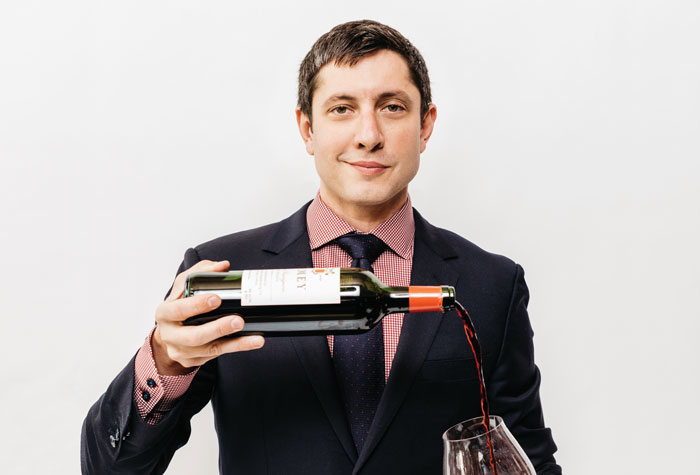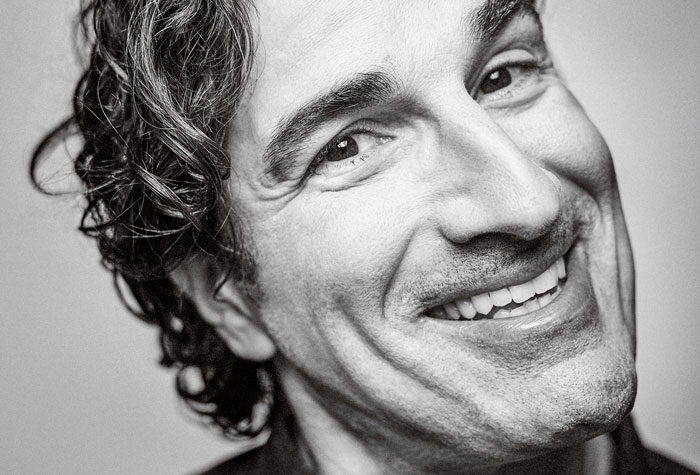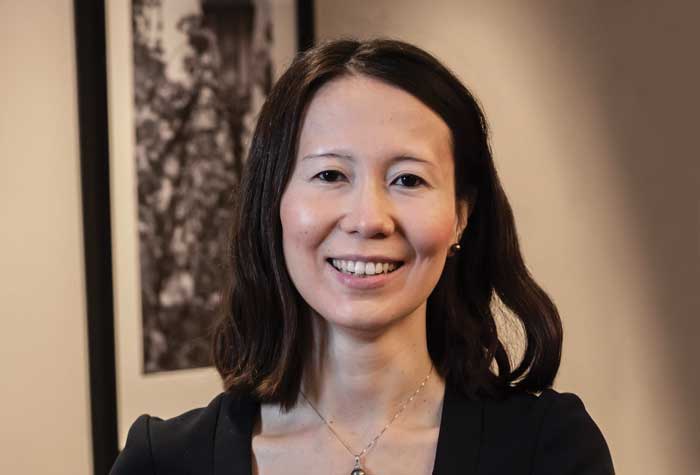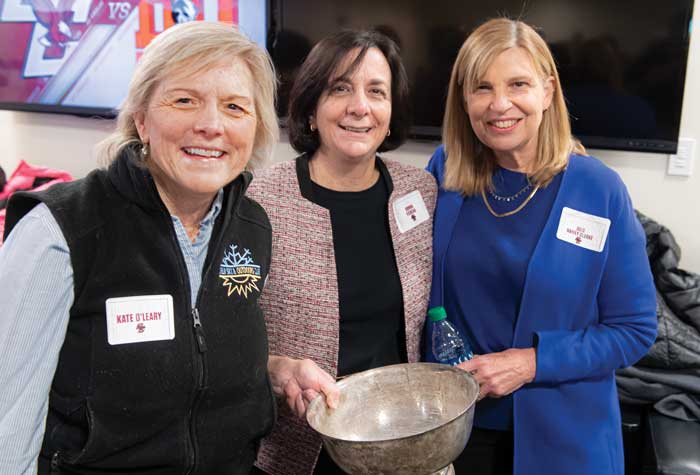Clockwise from far left: Warren Zola, executive director of BC's Chief Executives Club; former Celtics Ray Allen and Dana Barros '89; Al Skinner, former BC men's basketball coach; Michael Malec, retired BC sociology professor; Carroll School of Management Dean Andy Boynton '78; Law School Professor Kent Greenfield; and Doug Flutie '85.
Illustration: Peter O'Toole
Noonball: A Love Story
Noonball is the most competitive pickup basketball game you’ve never heard of. It’s also the reason that an insanely dedicated group of Boston College faculty, staff, and assorted guests has been scrambling to the court each day at lunchtime for something like fifty years.
Why the rush? The game starts at 12 p.m. sharp and “only the first ten guys there got to play,” says Carroll School of Management Dean Andy Boynton ’78, who played as a student. “So you had people running on the court half-dressed from all over campus. People would leave meetings early. I wouldn’t schedule classes for that time. This was an appointment.”
Boynton was part of what Warren Zola, the unofficial noonball commissioner and executive director of BC’s Chief Executives Club, calls the “congregation of idiots” that descended for years on the Plex and today plays at the Conte Forum—or wherever else they can find a court.
The participants are primarily BC employees and students, but star athletes such as Doug Flutie ’85, Ray Allen, and Dana Barros ’89 have been known to take the court. After tip-off, no one really cares who you are. “Nobody wanted to be the person who fouled Flutie or pushed him into a wall and he got injured—there’s a recognition of that,” Zola says. “But if he’s out there playing with us, he’s just another guy playing pickup basketball.” The game, in other words, is an equalizer, with deans, vice presidents, pro athletes, and the occasional Jesuit priest all throwing elbows.
No official score is kept, but the teams play to win. Blood is shed. “We play rough, but we don’t play mean,” says Law School Professor Kent Greenfield. The game has seen broken noses, a shattered eye socket, torn ACLs, sprained ankles, and jammed fingers. “I got clobbered by a Jesuit priest,” Michael Malec, a retired Boston College sociology professor, says. “He plowed into me and I tore my meniscus.”
Scott Washburn MA’87 played noonball for years as a graduate student and later an employee in the athletics department. Sidelined after having a defibrillator implanted in 1994, he returned to the court as soon as possible. When his heart started beating too fast during one game, a shock from the defibrillator sent him to the ground. “It felt like getting kicked in the chest by a mule,” he recalls.
Noonball gets rough enough that Zola’s wife, Amy Aulwes, dreads calls at 1 p.m.—they often mean Zola is on his way to St. Elizabeth's Medical Center. “I’ve had three surgeries on my knee, all because of noonball,” Zola says. “It is a fair trade.”
The game has also, from time to time, been an opportunity for the Joes to display their talents against the pros. Greenfield claims to have once taken the ball away from the former Boston Celtics standout Ray Allen—“I call it the great steal,” Greenfield says. For his part, Al Skinner, the former coach of BC’s men’s basketball squad (and a one-time NBA player himself), insists that no team he was on ever lost a game of noonball. That record was important enough to him that, whenever he’d catch another noonballer practicing after work, “I’d say, uh-oh, he’s putting extra time to get his shots in,” Skinner says. “I’m going to watch out for him.”
Over the decades, noonball has meant a lot of twisted ankles and sore muscles, but to those who play in it, the game has meant something else, too. “Professionally, there have been times in my career where I’ve toyed with the idea of going somewhere else,” Greenfield says. “Noonball is a big part of the reason I’m still here.” And what about Zola, he of the three knee surgeries? “When I retire, I’ll remember I was a part of this community,” he says. “It’s part of the fabric of this institution.” ◽


 print
print mail
mail


